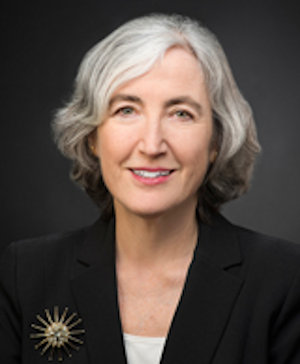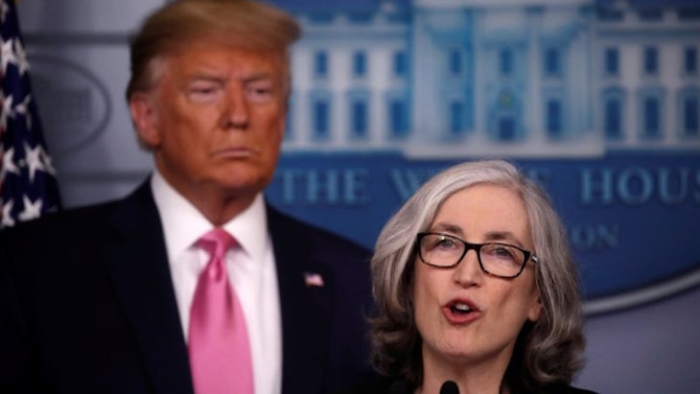ATLANTA – For two months now, Dr. Anne Schuchat’s job as principal deputy director of the U.S. Centers for Disease Control and Prevention has been laser-focused on Coronavirus Disease-2019 (COVID-19).
The COVID-19 response has demanded long hours working on very intense and challenging issues. Schuchat walks to work early in the morning in the dark and comes back home in the dark. Schuchat, a 60-year-old Jewish woman with a calm, credible, reassuring presence, often serves as CDC’s voice to American leaders and the public.
Through it all, she takes time to acknowledge her colleagues’ efforts. “I admire the talent and passion of our workforce. I’m inspired by the work that I see and the work that we’re doing,” she told Aish.com this week.

Schuchat has played a key role in CDC emergency responses including the 2009 H1N1 influenza pandemic and the 2003 severe acute respiratory syndrome (SARS) outbreak in Beijing. The spread of SARS, another viral respiratory illness caused by a coronavirus, also was linked to a live animal market. “I do think that the animal market is probably a commonality,” says the infectious disease detective, who joined CDC as an Epidemic Intelligence Service officer in 1988 and rose to become director of the agency’s National Center for Immunization and Respiratory Diseases.
Oscar-winning actress Kate Winslet interviewed Schuchat for insights while researching her role for the 2011 sci-fi drama “Contagion” as a disease detective battling a global outbreak of a deadly viral illnes,. Winslet’s character may have been modeled after Schuchat, who has worked on meningitis, pneumonia and Ebola vaccine trials in West Africa, and conducted surveillance and prevention projects in South Africa.
Schuchat advises people that the most important action they can take is to stay informed. “With an emerging new virus and a pandemic, things can change rapidly. Information for your local area could be changing day to day.”

As Schuchat notes, the situation varies across the United States and across the world. “There are hot spots across the U.S. that are seeing a lot of infections and others not much. When we talk about containment we talk about travel, identifying and isolating individuals who have the virus, tracing their contacts and who they’ve been exposed to.
“On top of containment, we’ve added mitigation, that is encouraging people to do social distancing with the intent to slow the virus, decrease the strain on the healthcare system and protect the most vulnerable.”
Layering Approaches to Curb Spread of Coronavirus
It’s important to take multiple approaches and layer them, she adds. “It’s too soon to know how much benefit we’re getting from the intense mitigation we’re doing. But we think it’s important. This virus spreads very easily even before you have symptoms.”
As for what else individuals can do, Schuchat suggests staying home and finding ways to remain connected from a distance. Her extended family in seven cities connected this week by video chat. “It was fun and strengthening. It was a nice time. It reminds you what’s important. While you’re not able to do some of the things you’re used to, try to find new things that are safe and healthy and that are reassuring.”
She knows of many instances of people reaching out with creative solutions to help one another. For example, community groups organize lunch drive-through pick-ups for children whose schools have closed because of COVID-19.
How Can I Help? A Healthy Response
Observes Schuchat: “In a crisis, what people want to know is, ‘How can I help?’ That’s a really healthy response.”
She suggests helping older adults by picking up supplies at the grocery store or medicines at the pharmacy. Maybe a neighbor who works in critical care could use assistance with a child or a pet. Someone without public transportation might need a ride to a medical appointment. Find a way to recognize emergency responders in the community who are working around the clock during the coronavirus response.
Schuchat grew up in a family in Washington, D.C., that probably traces its ancestry to shohets, ritual slaughterers. After graduating from Dartmouth Medical School, she did her residency in internal medicine at New York University’s Veterans Affairs hospital. At one time she wanted to become a small-town doctor. Later in her training she learned about public health and the ability to focus on large populations and communities.
It was the right choice for her. “Public health is one of those fields where people tend to be upbeat, positive, focused on fixing things. It has ended up being a really rewarding career for me.”
[Published on Aish.com, March 22, 2020]

